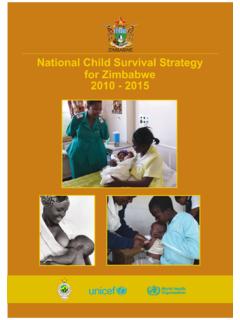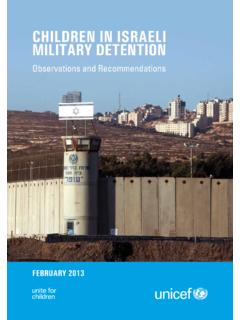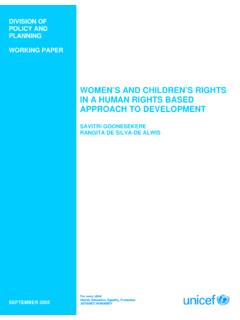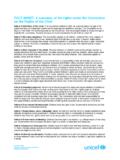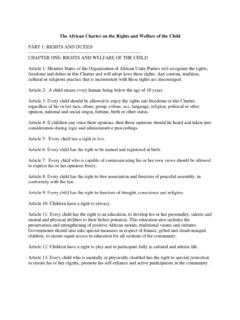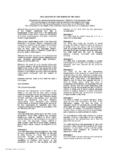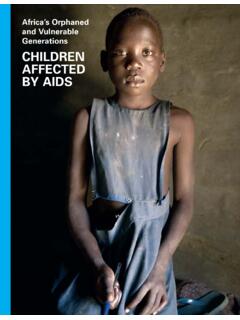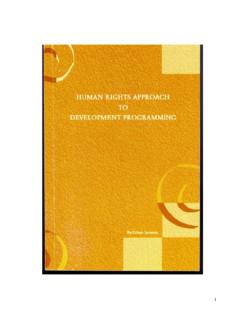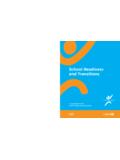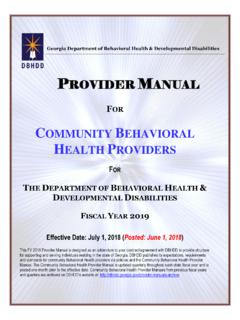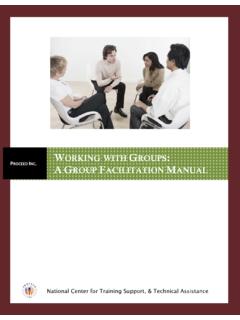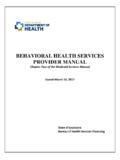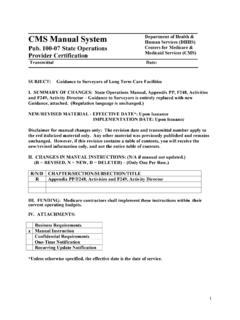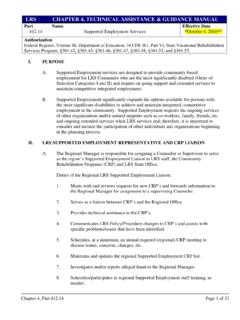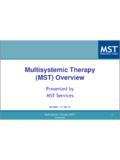Transcription of Life Skills – based Education for Drug Use …
1 life Skills - based Education for drug Use PreventionTraining Manual1 life Skills based Education for drug Use PreventionTraining ManualContentsUNIT ONEI ntroductionAbout the ManualWhat is a drug ?Basic concepts underpinning the training manualAbout life Skills Goals of life Skills - based educationHarm Minimisation and SchoolsLife Skills and Safe, Supportive EnvironmentsHealth Promoting SchoolsUNIT TWOP lanning for life Skills - based Education for drug use preventionSection 1. Approaches to drug EducationLimits of Different ApproachesEffective ApproachesPrinciples of Good Practice in drug Education - In the School SettingSection 2.
2 Incorporating knowledge, attitudes/ values and skillsKnowledge, Attitudes and Skills for Facilitators Overview of life Skills - based Approach for drug Education in Schools Four Methods of Implementing life Skills - based drug Education in SchoolsPossible Program ContentSection 3. Consideration of IssuesSensitive issuesGenderParentsMediaNon-formal Programs and Community OrganisationPeer EducationSection 4. Planning Learning ActivitiesSection 5 Evaluation and AssessmentTypes of EvaluationTeachers Using EvaluationDetailed examples of indicators at the classroom levelLife Skills - based Education for drug Use PreventionTraining Manual2 Assessing attitudes towards drug useGuidelines.
3 Evaluation of quality life Skills - based drug Education resourcesEvaluating life Skills - based drug Education programsUNIT THREELife SkillsLife Skill 1 - Working in Small Groups and FacilitationEffective groups, members roles, rules and goals, facilitation, tasks: making a decisionLife Skill 2 - CommunicationTypes of effective, verbal and non-verbal communication, active listening, barriers to communicationLife Skill 3 Decision-makingInfluences on, levels of, group and individual, decision-making model, values and feelingsLife Skill 4 - AssertionSupporting decisions, rights and responsibilities, assertive model, refusal Skills , resistance skillsLife Skill 5 Self Awareness Building SkillsDealing with feelings, personal responsibility.
4 Building self esteem and resilience, giving and gettingcomplimentsLife Skill 6 Coping and Stress Management SkillsGoal setting, positive thinking, time management, handling stress, negotiation Skills , conflictresolution, prioritising, handling social situations, asking for help, building support networksUNIT FOURF acilitator Support MaterialSection One - Teaching StrategiesExperiential LearningLearner centredCo-operative LearningEffective Group workInquiry MethodsQuestioning Techniques and Responding to QuestionsSelf disclosure and Personal QuestionsRole PlayBrainstormingSection Two - Group dividersSection Three - EnergisersUNIT FIVEW orkshop OrganisationLife Skills - based Education for drug Use PreventionTraining Manual3 Section One Workshop Planning
5 ConsiderationsSection Two - Workshop FormatSection Three - Workshop ProgramSection Four - Workshop EvaluationSection Five - Workshop Follow UpUNIT SIXD rugs and HIV/AIDS Background InformationSection One - drug InformationSection Two - HIV/AIDS InformationUNIT SEVENA ppendicesSection One - Reasons young people use drugsSection Two - Identification of drug usersSection Three - Basic counselling Skills for teachersSection Four - Involving parents and communitiesUNIT EIGHTR eferencesLife Skills - based Education for drug Use PreventionTraining Manual4 Quality Assuarance In Teaching And Learning MaterialsName of resource : _____Source (producer): _____Date published: _____Type of resource (check all that apply) Curriculum / textbook Learning materials / worksheets Teachers' manual / teaching materials training manual Video Comic book Other please specify _____What are the objectives?
6 _____Who is the target audience? _____What time investment is suggested? (# sessions, time per session, # week/months/years)_____For what setting(s) is the resource intended? ( , schools, health centers, community centers)_____In what kind of setting(s) is the resource currently being used?_____Has the resource been evaluated? Yes NoIf Yes, by whom and with what findings?_____Life Skills - based Education for drug Use PreventionTraining Manual5 Quality ChecklistName of resource: _____Quality criteriaScore(1-5, with 5 as thehighest)Comments1.
7 Behaviour change (Total Score)- How prominent is behaviour changeas part of objectives?2. Knowledge / Information (Totalscore -- )- clear?- accurate?- up-to-date?- relevant for drug prevention ?3. Attitudes (Total score --)- How well are attitudes andmotivation addressed?- How adequately are discriminationand stereotypes addressed?- How well are drug related attitudes(care and prevention ) addressed?4. Skills (Total score --)-How relevant are the Skills to theobjectives? ( , communication &interpersonal Skills ; decision-makingand critical thinking; coping and self-management; values clarification)- How well are each of the skillsaddressed?
8 (eg. time to practice Skills ,realistic situations, applied to specificrisks rather than generically etc)5. Methods (Total score --)- How balanced is the participation ofstudents compared toteacher/facilitator?- How appropriate are the methods forachieving the objectives?6. Gender sensitivity (Total score --)- in content?- in methods? life Skills - based Education for drug Use PreventionTraining Manual6- in language?- in illustrations?7. Planned around student needs &interests (Total score --)- relevant to local needs of targetaudience?
9 - how involved are students in thedevelopment of the program?- how involved are students in theimplementation?- How user friendly?- How sensitive to cultural / ethnicdifferences?- How sensitive to socio-economicdifferences?- How well are referral to localservices addressed? (eg. STIs,condoms, counselling, drug testing?)8. Effective (Total score --)- how effective has the program beenin achieving the objectives in thepast/elsewhere?- How suitable are the studentassessment processes? (Are theyrelevant to the objective of theprogram?)
10 9. Intensive (Total score --)- Sufficient duration to achieveobjectives, while also realistic?- Feasible for teachers to be trained touse this resource effectively?Overall Comments: Strengths and Limitations-Looking at the above scores, and considering the context in which you would use this resource, whataspects would need to be adapted?Will this be feasible ( , given resources and time)? life Skills - based Education for drug Use PreventionTraining Manual7 Will this resource fill needs that are not being met by your existing materials?
